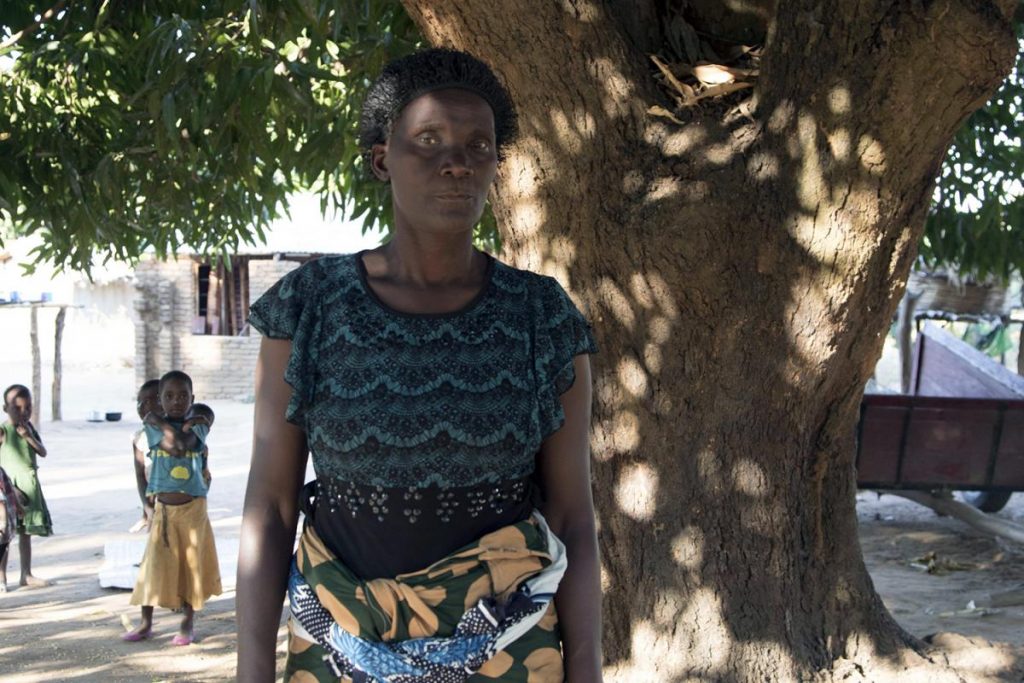
© 2016 Lauren Clifford-Holmes for Human Rights Watch
Rojaina and her children used to live in a brick house in a small village in rural Malawi. After a coal mine started operating nearby, she was told to leave her house as the land was needed for mining. Rojaina and her children were given little money to build a new home and she received no compensation for the loss of land her family has farmed for generations. “I used to have three fields where I was growing groundnuts, cassava, maize,” she said. “That is what fed the children. But they took it away from us. That’s why we are hungry now.”
Most rural families in Malawi lack formal legal title to the land they live on and farm, and this creates insecurity that women often feel most acutely. When communities are resettled to make way for mining or other projects, discrimination – sometimes reinforced by local customary norms – can leave them less likely than men to receive fair compensation. And after losing their land, women are often the ones left scrambling to find some new way to feed their families. Women in Malawi are not alone in this: in many African countries women struggle to enforce their legal rights or suffer unique insecurities under legal regimes that do not grant title to farmers at all.
Today, thousands of women from all over Africa are meeting at the foot of Mt. Kilimanjaro in Tanzania to demand strengthening women’s rights over land in rural areas across Africa. As part of the Women to Kilimanjaro Initiative, a small delegation of women even climbed the peak itself – an elevation of nearly 6,000 meters above sea level – with a list of demands aimed at securing real respect for their land rights. Their descent from the mountain on October 15 coincides with the International Day of Rural Women, which recognizes their role in improving food security and eradicating poverty.
There are some encouraging signs: In Malawi, President Peter Mutharika just assented to a new customary land bill, which provides opportunities for women to own land and participate in resolving land disputes. Malawi is also developing a National Resettlement Policy, setting minimum standards to ensure respect for the human rights to housing and property when people are required to leave their homes. These are good first steps, but what matters most for women like Rojaina is speedy and effective implementation.
The women climbing the Kilimanjaro have demonstrated that they can take on a huge challenge. Governments should follow their example.

